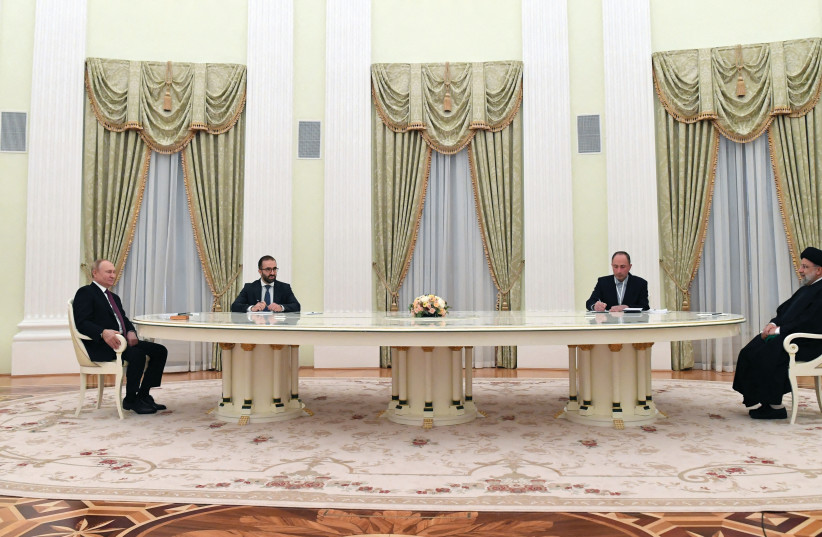In a statement that appears aimed at the United States and the West, China and Iran have agreed to strengthen “cooperation in counter-terrorism” and security, according to media reports in the two countries. This occurred during a meeting between the Chinese State Councilor and Foreign Minister Wang Yi and his Iranian counterpart Hossein Amir Abdollahian in Tunxi, China.
According to CGTN, China’s state-run media organization, “the two countries should remain highly vigilant against the East Turkestan Islamic Movement (ETIM) and other terrorist and extremist forces taking advantage of the situation in Afghanistan to create chaos, Wang said.”
What this means is that China wants Iran to focus east and that means potential cooperation when dealing with issues in central Asia and Afghanistan. The irony of China and Iran working on “counter-terrorism” is that the US has accused Iran’s IRGC of being a terrorist group and the US accuses China of genocide in its treatment of Uighurs and other mostly Muslim groups.
China says that it is committed to closer ties with Iran, a commitment that is linked to a new 25-year agreement the countries have focused on. This could have widespread ramifications as it will bring money to Iran’s economy and potentially increase Iran’s infrastructure investment. That could also lead Iran to focus more on its technological defense programs, such as missiles and drones which threaten Israel and the region.
Iran’s foreign minister Abdollahian reportedly said that “Iran is willing to expand oil and gas cooperation with China, be a reliable energy partner of China, and strengthen connectivity, trilateral cooperation and educational exchanges with China.” CGTN says that China and Iran “also exchanged views on resuming negotiations on the implementation of the Joint Comprehensive Plan of Action.” This means China may be joining Russia in backing Iran in its talks with the West, which could have ramifications for Iran developing nuclear weapons or blackmailing the West using a threat to develop the weapons.

Iran’s Tasnim News also highlighted the visit to China. The article said the meetings focused on the development of economic cooperation. Iran wants to send more students to China to study. This is part of a large pivot by Iran’s regime to focus east, especially focusing on China. Iran has said that sanctions by the US and the West are illegal and China, Russia and Iran may now focus more efforts on getting around sanctions because Russia is similarly affected.
Tasnim notes that “during the meeting, Chinese Foreign Minister Wang Yi conveyed the warm greetings of the Chinese President to the President of Iran, thanked the Iranian side for its participation in the third Afghanistan Neighbors Summit and for close cooperation and consultation between the two sides to implement the 25-year document.”
The two sides also exchanged views on the latest developments related to the Vienna talks and stressed the need to confront unilateral and illegitimate sanctions on some Western countries, Iran’s media said.
